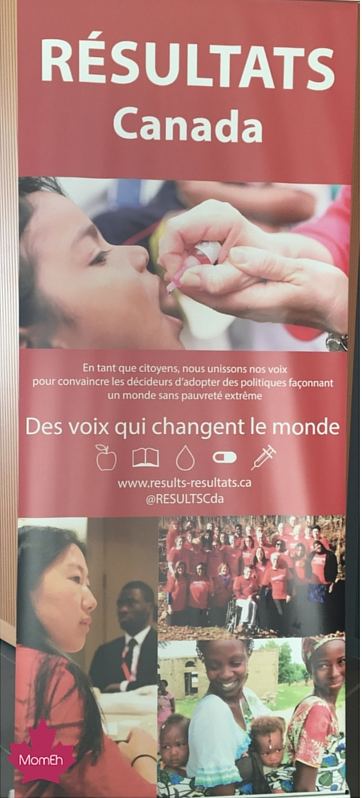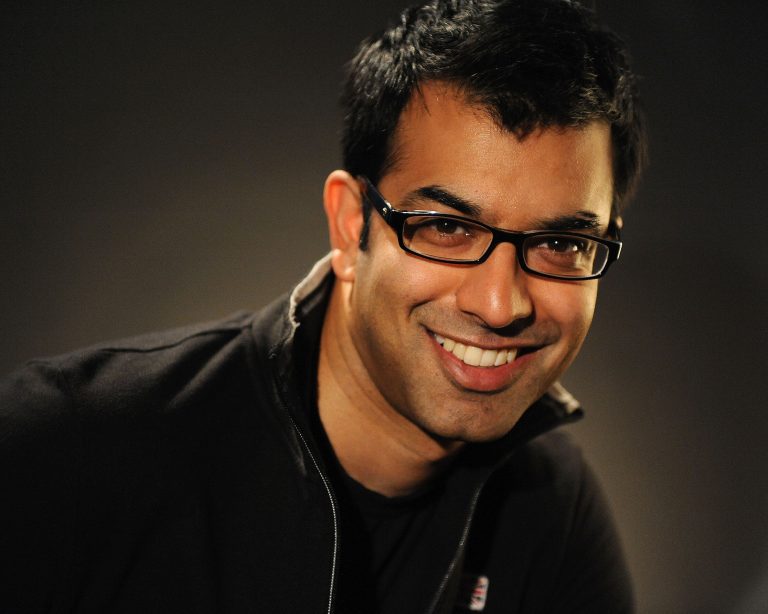Results Canada #Voices4Results Universal #ChildrensDay Conference
I had the honour and privilege of meeting and interviewing three leaders from the global south, this past November at the Universal Children’s Day conference in Ottawa hosted by Results Canada. The conference was entitled“Global Goals: Is Canada Up To the Challenge?”
November 20th marks significant international landmarks in children’s rights, including the United Nations General Assembly’s adoption of both the Declaration of the Rights of the Child in 1959 and the Convention of the Rights of the Child in 1989.
Yoannes Paulus Yimbesalu
Originally from Cameroon, Joannes is a research scientist and global leader on issues that affect young people and girls. In 2010, Joannes founded HOPE for Children Cameroon, to ensure all children across Cameroon have full access to education. Since 2010, his organization has provided tuition assistance to over 300 children while over 500 children have received school supplies. He has received various accolades for his youth leadership initiatives and tireless efforts to improve the health and well being of girls and women, including the 2014 Youth Courage Award from the UN Envoy on Education and the Queen’s Young Leaders Award. He currently serves as a member of the Clinton Foundation 20/30 and the Global Citizenship Education Working Group on Policy, Advocacy and Communications at the Brookings Institute.
As a Global Youth Ambassador for a World at School and a Women Deliver Young Leader, Yimbesalu spoke to the intimate audience about highlighting education and the universal right of all children to receive a quality education.
With the largest refugee crisis since World War II underway, and an increasing numbers of natural disasters, only 1% of all humanitarian aide went to education last year, leaving millions of children out of school and without hope.
Every child deserves the chance to plan for a better future. Yimbesalu called on the international community – especially the newly-elected government of Canada – to move quickly to set up a much-needed new platform to fund and coordinate education in emergencies.
He shared some mind blowing facts with the captive audience such as that it will require $4.8 billion annually to provide education to every child in conflict areas and that 124 million children globally are out of school, most of them are girls. Hearing his first hand account of the issues that they millions of children face on a daily basis around the world; particularly in the global south was astonishing.
Here are some shocking facts Yimbesalu shared:
-One billion people around the world live on $1.23 a day.
-Countries such as Canada and the US have a critical role to play in aiding to develop policies that are inclusive.
-Education is the ONLY investment we can give to a child. We must make sure that every child is in school and learning. If the world acts now, 2100 is the year it is estimated that we can get every child in school and learning.
-How do you educate young people? Bring educators into the field, provide opportunities for young people to express themselves, Youth Clubs, UN model system.
-Yimbesalu remarked that the media shows that Africa is where people are dying due to Ebola. He insisted that the media also has a role to play in shaping the narrative. He went on to share that kids in Africa want love and affection and that we don’t hear enough of that in the media.
-Polygamy is a really big problem in Africa where typical family consist of eight to ten people. He also shared that child marriage is a HUGE problem.
They gave shoes to kids in school. Two months later they were barefoot. When asked why they were not wearing the shoes they were given, the children responded that iff they wore shoes today, they would not have shoes to wear on Christmas day. There is a huge need for simply educating these children and creating a sense of awareness.
-Education is the only investment we can give to each child.
-In Mali for instance – if a child is not exclusively breastfed for 6 months they cannot have a baptism in the village.
Marie-Irène Kominlin Eba Richmond Ahoua
A prominent and long-standing member of Rotary International, Marie-Irène Richmond is a humanitarian, civil society advocate and a prolific female leader, locally, regionally and globally. Marie-Irène currently works for the United Nations in Côte d’Ivoire, having previously worked for UNICEF in the West and Central Africa Regional Office. She is the former chair of the Global Polio Eradication Initiative PolioPlus Committee in Côte d’Ivoire and is a current member of Rotary’s Africa Regional PolioPlus Committee. Most recently, Marie-Irène presented at the Summit of the African Union in Addis Ababa, Ethiopia in January 2015, speaking to the key role of Rotary in the Global Polio Eradication Initiative.
-She proposed that people rally local NGO’s to provide books to children around the world and commented that children no longer read very much at all.
-She suggested teaching children the basics of computers to raise their level of education.
-Education is fundamental
-Education comes before development. Thats what we want for each of our children.
-On average only 1% of an education budget goes towards literacy.
Dr Shahida Akter
Dr. Shahida Akter is a medical graduate with a Master of Public Health from North South University. She is currently working as Project Coordinator at CARE Bangladesh and as the National Coordinator, Civil Society Alliance for Scaling Up Nutrition (SUN), Bangladesh where she is responsible for program implementation, advocacy, communication, public relations, manual development, monitoring and supervision and partnership development in relevant sectors and take a lead in determining the direction of CSA SUN in Bangladesh. Before joining SUN, she had worked as Monitoring Officer with the Bangladesh Country Coordinating Mechanism Secretariat of The Global Fund. She had also previously worked as a Program Officer for the Child and Women Rights Advocacy Program with Underprivileged Children Educational Programs (UCEP-Bangladesh) addressing child and women rights advocacy issues.
Dr. Akter began her speech with the story of an eight year old she met in Bangladesh. He asked her, “How can we ensure nutriton for my pregnant mom when we have no food in our home?”
Malnutirtion is a silent epidemic in Bangladesh due to which children receive fewer days of education and are more vulnerable to illness. She went on to share that 41% of children are stunted due to malnutrition and that 40% of its future work force is intellecutally and physically challenged.
There is a lack of proper information, lack of policiy, declined health and infrastructure.
This challenge shoulld be addrressed.
Your role is the confront the challenges their country faces in facing these issues.
I was honoured to hear these speakers from the global south speak in person and offer insight into some of the conditions facing millions of individuals around the world. For more information on Results Canada and the incredible work they are doing, check out their website.








